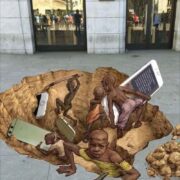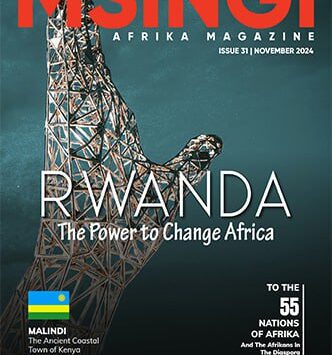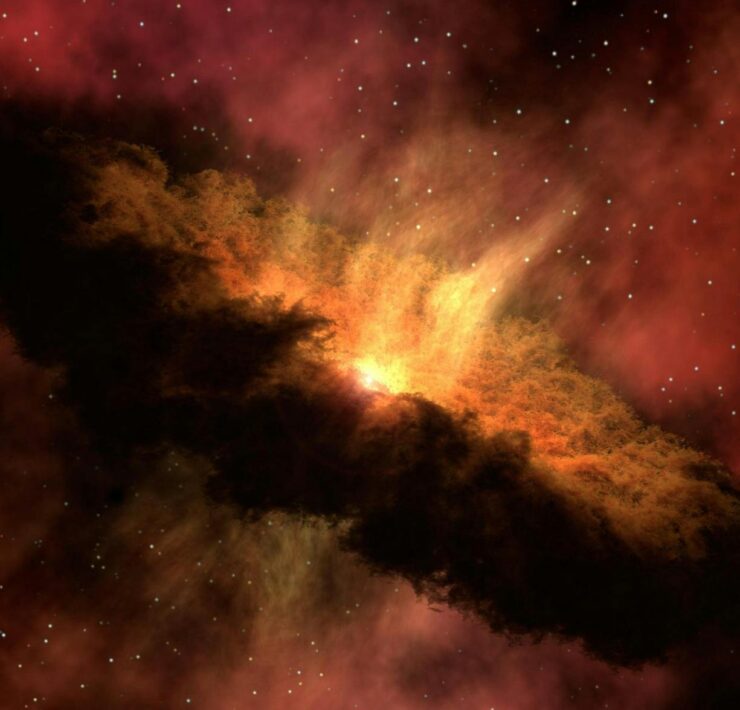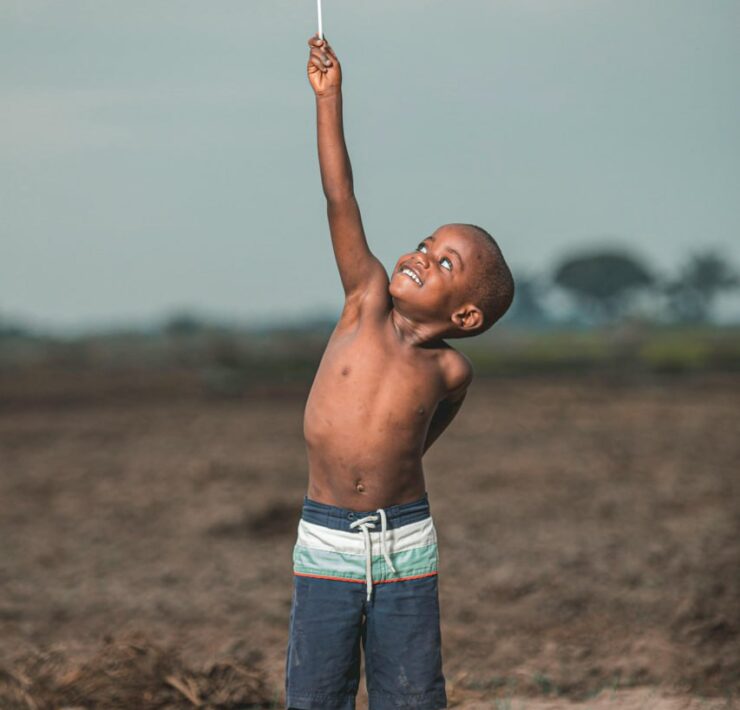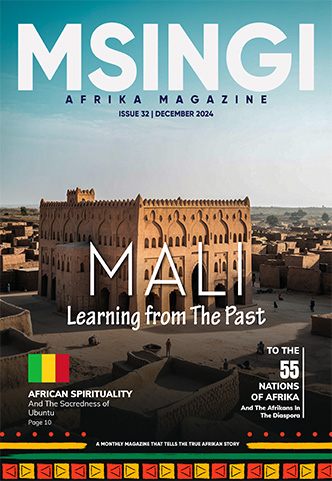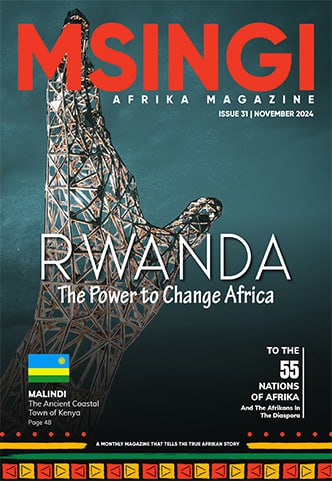NATION IN VIEW: RWANDA
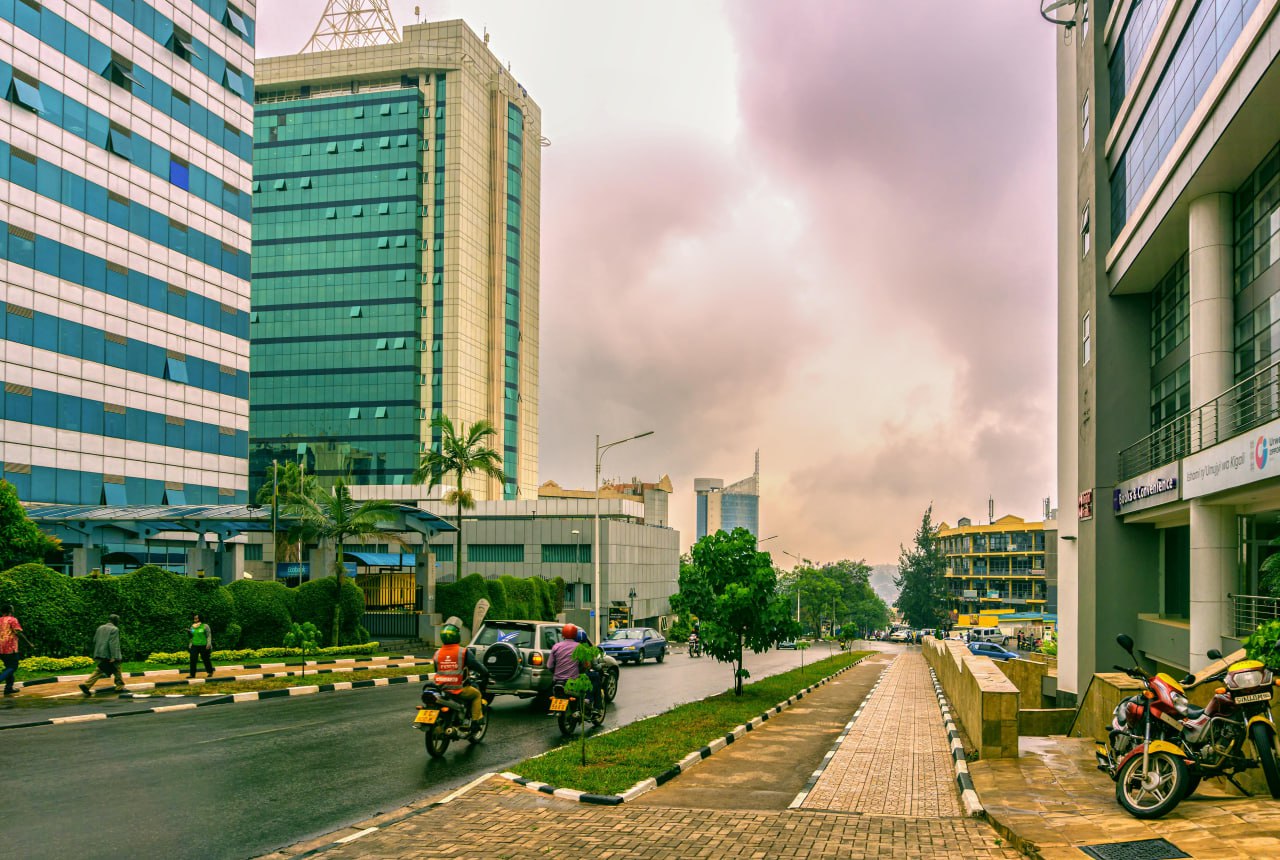
Samuel Phillips is a writer, graphic designer, photographer, songwriter, singer…
The Power to Change Africa
The Republic of Rwanda is one of the countries that make up the Great Lakes regions in East Africa. It is a country in Central Africa, bordered to the North by Uganda, to the East by Tanzania, to the South by Burundi, and to the West by the Democratic Republic of Congo. Rwanda’s total area is 26,338 Km2, with a population density estimated to be 445 people per km².
When you think of Rwanda, what likely comes to mind is the tragic 1994 Rwandan Genocide which took the lives of about a million Rwandans (Tutsis and Hutus), within an unprecedented timeframe of a hundred days.
Even though this story in the history of the Rwandan people is real and even though it is part of the history of Africa, this is not the only story that makes up Rwanda, neither did the history of Rwanda begin with the genocide of 1994, just like the history of Africa did not begin with the Atlantic Slave Trade or colonialism. We wouldn’t be doing justice to the African spirit if we allowed ourselves to tell our stories only from the lenses of these horrors.
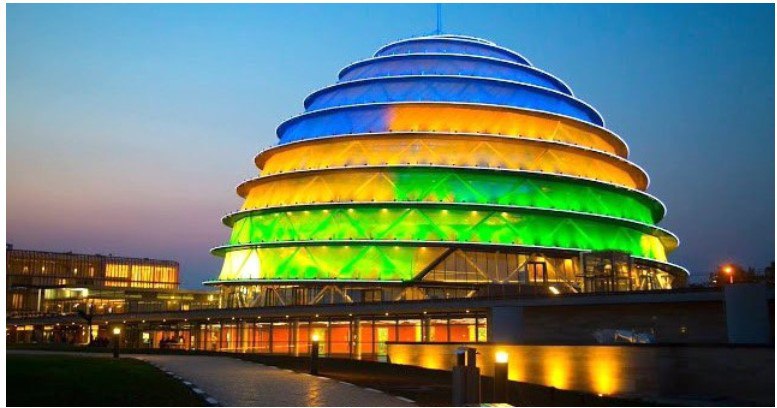
I am very much aware that there are various opinions about Rwanda, especially about Paul Kagame, the country’s president, and even the role of the Rwandan government or military in the crisis in the DRC. But the story of Rwanda still remains a thing of real beauty and encouragement for how to move away from that which was pure evil to embrace massive progressiveness in development which can be emulated by other African countries. Imagine Rwanda offers a one-month visa-free visit to every African Union citizen. This might not be the best we should aim for as Africans regarding a borderless Africa, but at least, it’s a good start, and it’s appreciated. Also, it takes six hours to register a business in Rwanda. Imagine if that were possible in every African country.
Geography
Rwanda is a landlocked country situated in central Africa packed with exciting geographical features. Also known as ’The Land of a Thousand Hills’, Rwanda has five volcanoes, 23 lakes, and numerous rivers, some forming the source of the River Nile. The country lies 75 miles south of the equator in the Tropic of Capricorn, 880 miles ’as the crow flies’ west of the Indian Ocean and 1,250 miles east of the Atlantic Ocean – literally in the heart of Africa. The Altitude ranges from 950m to 4500m above sea level.
Rwanda has two rainy seasons, March – May and October – November, with an average rainfall of 110-200 mm per month.
The average temperature ranges from 24.6 to 27.6ºc, with the Hottest months being August and September.
The main water bodies are Lake Kivu, Lake Muhazi, Lake Ihema, Lake Bulera, Lake Ruhondo, Lake Mugesera.
Rwanda’s Vegetation ranges from dense equatorial forest in the north-west of the country to tropical savannah in the east.
The main National Parks/Animal Reserves are Akagera, Volcanoes and Gishwati-Mukura National Parks.
In Rwanda, the great animals of the wild are protected from poachers and roam free in the vast national parks. The Volcanoes National Park in the Virunga volcanic mountains with its high altitude forests is world famous for mountain gorillas – timid and passive family-oriented giants. The Park is teeming with wildlife both large and small, while Lake Kivu to the west offers beautiful beaches, jutting peninsulas, and an archipelago of islands.
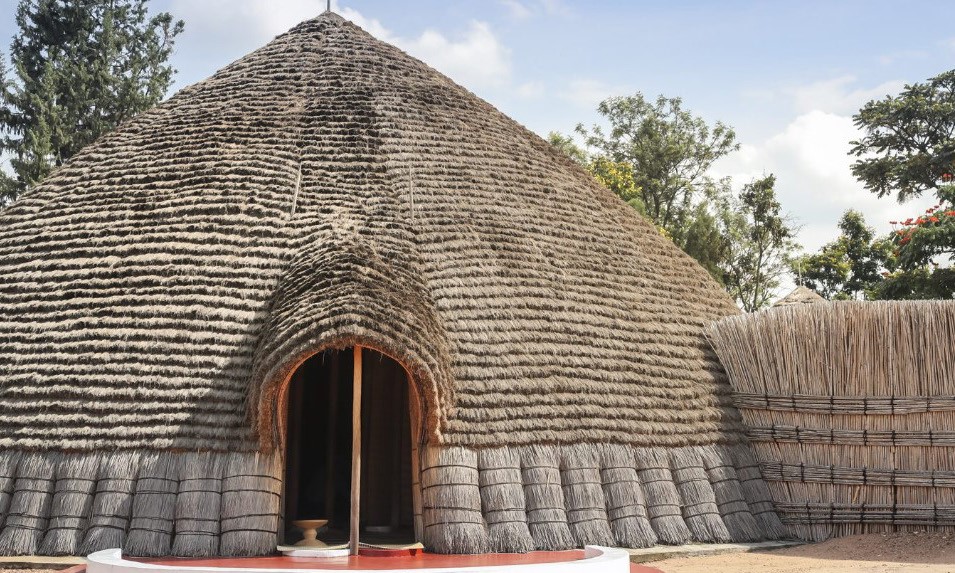
People & Culture
With an estimated total population of 12.3 million people, Rwanda is a relatively young country. 50 percent of the Rwandan population is under 20 years old, with the median age standing at 22.7 years old. Rwandans share cultural values notably unity, patriotism, social cohesion, resilience, and hard work among others, with Kinyarwanda being the common language, spoken in all parts of the country. Other official languages are English, French, and Kiswahili.
The country’s rich culture has become a source of inspiration to craft some unconventional, homegrown solutions to address the challenges and the consequences of the 1994 Genocide. These include among others, Umuganda (Community work), Imihigo (Performance contracts), Gacaca [traditional] courts, Abunzi.
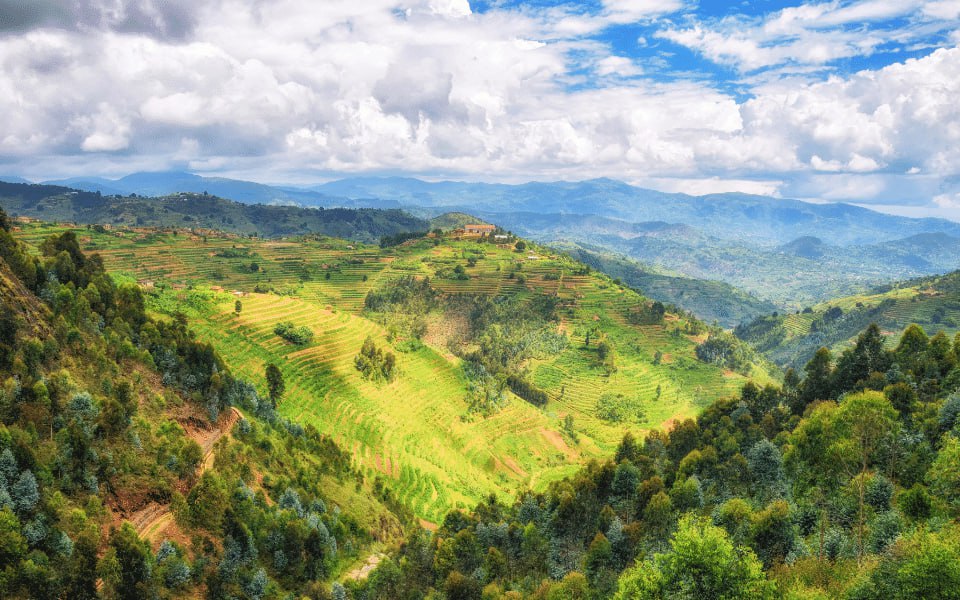
Umuganura or Harvest Day remains the country’s largest festivity where Rwandans from all corners of the country meet to celebrate achievements in different sectors and recommit to doubling efforts to achieve more.
Music and dance make an integral part of Rwandan ceremonies, with Umushayayo and Intore dances having won the hearts of cultural performance lovers.
Rwandan art crafts display a high level of skills and creativity in the country of Thousand Hills, with Agaseke or handwoven baskets having won international acclaim. Imigongo pattern and Rwanda’s growing fashion industry have also become iconic of the Made in Rwanda brand.
History
For centuries, Rwanda existed as a centralized monarchy under a succession of kings from one clan, who ruled through cattle chiefs, land chiefs, and military chiefs. The king was supreme but the rest of the population, Hutu, Tutsi, and Twa, lived in symbiotic harmony. In 1899, Rwanda became a German colony and, in 1919, the system of indirect rule continued with Rwanda as a mandate territory of the League of Nations, under Belgium.
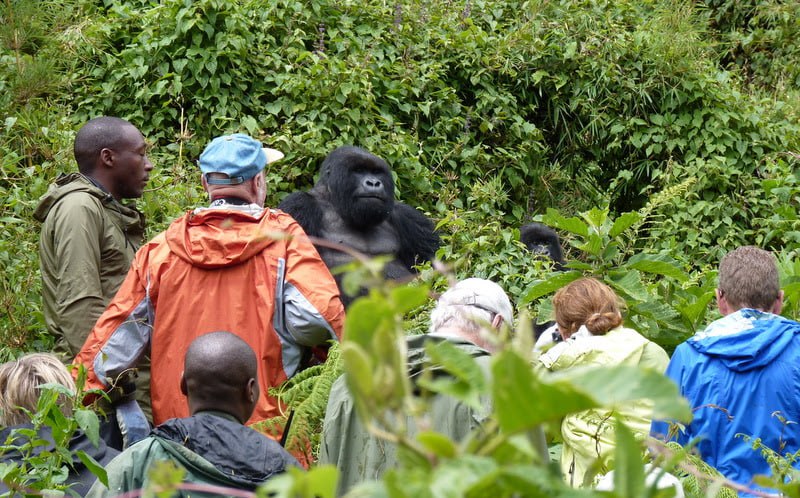
Other Facts about Rwanda
Name Republic of Rwanda
Capital City Kigali
Currency Rwandan Franc (FRW)
Time Zone UTC +2 (Central Africa Time)
Size: 26,338 Km²
Population: (NISR, 2022) 13.2 Million
Temperature: 21°-27°
Life expectancy: 69.9 years
GDP per capita: $1,040
GDP growth per annum: +8%
Sources: ( https://www.gov.rw/about and https://www.butterfield.com/get-inspired/facts-about-rwanda)
7 Facts That Will Change How You Think About Rwanda
1. Rwanda is one of the cleanest nations on Earth.
Not only has the country employed a decade-long ban on plastic bags and packaging material, but locals take part in a monthly community clean-up called Umuganda. Translating to “coming together in common purpose,” Umuganda was introduced to Rwandan life in 1998 and involves everything from rehabilitating forests and wetlands to building schools and hospitals. While Umuganda is mandatory for Rwandan locals aged 18-65, visitors and ex-pats are encouraged to roll up their sleeves and pitch in on the last Saturday of every month.
2. You’ll find some of the best coffee in the world here.
Great coffee is known to thrive high up in the mountains. Thanks to Rwanda’s high-altitude and tropical climate, you’ll taste some of the best coffee in the world here: mostly of the bourbon variety, ultra-buttery, full-bodied liquid gold. And the site of Rwanda’s burgeoning coffee fields is a spectacle in itself. Shiny green leaves blanket verdant hills as far as the eye can see, contrasting perfectly with shimmering lakes and cloud forests.
3. Rwanda pioneered equal gender representation in politics.
With over 60% of its parliamentary seats occupied by women, Rwanda was the first country to have the highest representation of women in power—which remains the largest allotment compared to anywhere else on earth. The Rwandan government also puts equal rights at the forefront: since 2018, the country has ranked at the top of the list for gender equality according to the Global Gender Gap Report. These ideas are demonstrated not only through politics but also through education, job opportunities and the role of women in healthcare.
4. Kigali hosts monthly Car Free Days.
In their efforts to promote activity and sustainable transportation methods, Rwanda hosts monthly Car Free Days in its green capital city of Kigali. On every first and third Sunday of the month, busy streets are shut down to make way for bikers, runners and skaters of all ages. While striving for reducing emissions, Car Free Days are highly anticipated among Kigali residents as it offers a safe way to socialize and get active outdoors.
5. The bar for sustainable eco-tourism is set sky-high.
Inspired by the likes of Bhutan and Botswana, Rwanda has made a deliberate decision to promote exclusive, low-footprint travel that protects the environment and benefits local communities. Many accommodations put animal conservation, reforestation efforts, and sustainability at the forefront–one of our favorites being One & Only Nyungwe. Featured on our Rwanda Walking trip, the resort plays a critical role in the conservation of natural habitats and critically endangered species. With an abundance of lodges operating off of the Bioregional’s One Planet Living Sustainability Framework., Rwanda sets the standard for mindful eco-tourism.
6. Rwanda will become the first African nation to host the Road World Championships.
While the bid was tight between Rwanda and Morocco, The International Cycling Union has confirmed that Kigali is set to host the 2025 Road World Championships, a first for Africa. With an incredible mix of stunning vistas, challenging ascents and thrilling descents, it’s a no-brainer that Rwanda has become a hot spot for cyclists in recent years. The country has long been known to host the Tour du Rwanda, where thousands of spectators gather to cheer on local riders and those from neighboring countries. Bouncing off of the Tour’s cult following, the 2025 Road World Championships are set to be one of the most anticipated events in Rwandan cycling history.
7. B&R has been visiting Rwanda for over a decade!
When we first discovered Rwanda’s jaw-dropping beauty over a decade ago, everything we thought we knew about the typical safari experience changed forever. Rwanda is home to an ambitious population with a steady eye on a promising future, and we’ve been getting behind the scenes with our network of contacts for years to truly understand what makes this resilient country tick. Source: https://www.butterfield.com/get-inspired/facts-about-rwanda
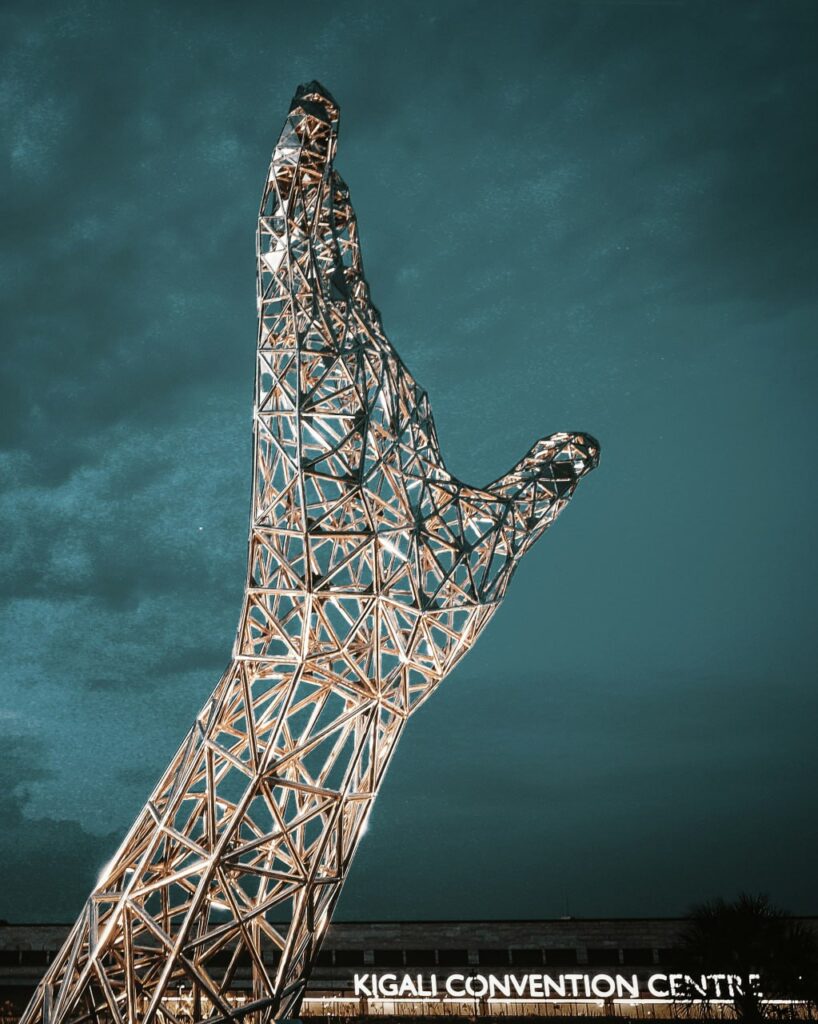
Prayer for Rwanda
Rwanda as a people and then as an African country has endured a lot of hardships in the past several decades just like most African countries. And even though national processes are different, our stories are the same. We must celebrate every single act of progress that each of the fifty-five African countries is making toward a better environment for their people and the African people in general. So I pray that the strength that Rwandans need to bring the nation of Rwanda to complete liberation be made available to them. This strength can come in the form of better policies that enable the people to do more, a new perspective for the leadership of the country, a better way to handle crises across the border, and any other things that make for true peace and happiness.
The power to change Africa is in how we deal with issues amongst ourselves and how we raise each other up to create a new narrative that takes out the old which was meant to take us down and then brings in the new which lifts us all.
Alafia!!
What's Your Reaction?
Samuel Phillips is a writer, graphic designer, photographer, songwriter, singer and a lover of God. As an Afrikan content creator, he is passionate about creating a better image and positive narrative about Afrika and Afrikans. He is a true Afrikan who believes that the true potential of Afrika and Afrikans can manifest through God and accurate collaborations between Afrikans. Afrika is the land of kings, emperors, original wisdom, ancient civilizations, great men and women and not some road-side-aid-begging poor third world continent that the world finds joy in undermining.








